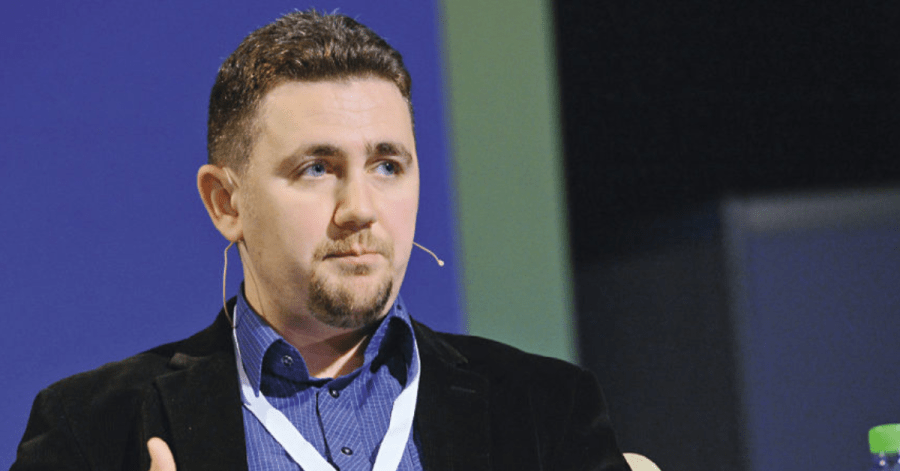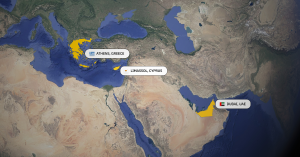These days, securing important data from operations is a big must when running a business. Blockchain is a technology developed to keep all the transactions and pieces of information in a decentralized and secure way. It happens without the need of a third party during the process of recording data which shapes the innovative function of blockchain. That makes the technology a possible game changer in the startup industry, as a lot of companies worldwide are using it to manage information safely.
In Bulgaria, blockchain is still not widely recognized as its application is still far from undertaking the local ecosystem. However, there are entrepreneurs who are trying to implement blockchain in a beneficial way for the whole Bulgarian economy. One of those people is Emiliyan Enev, a blockchain advocate and a motivated entrepreneur from Russe, Bulgaria.
Emiliyan is a co-founder and CEO of ReCheck, a blockchain startup located in Limburg, The Netherlands, that specializes in providing businesses with future-proofing blockchain solutions. In an interview for The Recursive, Emiliyan talked about blockchain use cases and the future of this technology.
The Recursive: Can you share how your path in entrepreneurship started and how did you become a blockchain advocate?
Emiliyan Enev: It all started 12 or 13 years ago. I wanted to develop the local ecosystem and follow the example of Sofia, showing that the startup ecosystem environment can be built in other cities too. I was meeting with other entrepreneurs with whom I was sharing some ideas and discussing possible future projects.
One of the first startups I launched was in the field of Mobile Marketing and Location-based Marketing. InfoZone is a mobile app close to Google Maps helping you find some places nearby and check the offers and events from such places.
After that, I started StartUp Factory, an NGO association, and approximately 5 or 6 years ago we launched ReCheck, a blockchain startup. We thought that blockchain is a game-changing technology, something that will have a lot of real-world applications in the future. We decided that blockchain is good for proving these physical products and creating a digital representation of physical projects on the blockchain.
Can you tell us what role blockchain plays in solving real-life business problems?
Blockchain is good for such processes and use cases where secure data exchange, traceability, automation, and transparency are important. The digital ledger technology plays an important role as a layer and component on top of existing platforms that enable real ownership of data and direct exchange of value between users.
I believe that before web3, we need to achieve web2.5 – interweaving and integrating blockchain into existing systems. What’s exciting to me is the opportunity to take back control of our personal data and decide what information we share with whom, as well as getting a direct return on the content we generate. The other option is to have ownership of the platforms and products we use, and so get a share of the value they generate.
What are the potential use cases of blockchain technology that you think no one is discussing yet?
Few people talk about the so-called Token gating and car passports on the blockchain. Token gating will become the standard for managing loyalty programs, where the most important customers and fans will receive NFTs through which they will unlock exclusive content and experiences. At the same time, property and vehicle passports are an opportunity to create a trusted history on the blockchain of the condition, improvements, and records of assets. This history and data will also determine the asset price.
In what way do you think the regulation of cryptocurrency could affect the development of blockchain technology and its applications?
Regulations will certainly have a strong effect on it. On the one hand, they protect investors and consumers. But on the other hand, they can be a brake on innovation and create barriers for start-ups and small companies. It is important to me that regulations are bottom up, not imposed from above, and that they do not privilege only the big players.
In your opinion, what problems of the contemporary monetary system can cryptocurrency solve?
Centralization, high transactional costs, use of financial institutions for political purposes (e.g. possibilities of seizure, blocking of funds), etc.
Could you tell us which are the two biggest risks when investing in crypto? And what should not stop us from doing it?
The main risks are related to the search for quick speculative profits, trusting rumors and manipulations, lack of serious research, and underestimating security protection. There is a need to invest in projects that are truly decentralized, with a great technology foundation and a team with a proven excellent reputation. You also have to think long-term.
Could you point out the main reason for the recent crypto crash and how you see this developing ahead?
The reasons are related to fundamental vulnerabilities and weaknesses in the algorithmic stack coins, the changing macroeconomic environment and monetary policy (interest rate increases), the lack of liquidity and free money to invest in cryptocurrencies, and the overvalued levels of many tokens.
As long as there is a restrictive monetary policy and high-interest rates, it will be difficult to see a recovery in cryptocurrency prices. I expect that a few notches will dominate in the coming years and their token prices will sustain a higher price. Altcoins will have almost no value.
How do you think investors will be able to recover from the crypto crash? What long-lasting effects can you predict?
Those who have a long-term strategy, do not seek speculative high returns, and invest with a sound knowledge of the fundamental characteristics and advantages of the protocols will recover. The long-term effects are related to the application of blockchain to real-world use cases and the success of projects that create value.
What piece of advice could you give to young Bulgarian entrepreneurs?
It’s about being persistent, proactive, and embracing the pain. This is not something that you hear a lot but accept that it will be difficult to run a business here. It is important to find the faith that will give you the energy to work and the direction to go.
For me, it’s important to be realistic and honest with yourself, accepting that you are building a business that will grow and will emerge in the next, maybe, 10 years, so patience is crucial as well. I would add that entrepreneurs have to be determined, listen to their intuition, and do what truly inspires and energizes them. Success does not come easily, it takes many years of struggle and effort before results come. Enjoy the process.
You have established Startup Factory in your hometown Ruse, can you share why you decided to do so and what are the results that you are observing?
We created Startup Factory because I believe that developing the entrepreneurial ecosystem is key to the local economy and that it is important to support early-stage startups. I believe in synergies, in a culture of helping, sharing knowledge, and giving back value.
I also learned that there was a shortage of digital and soft skills and we looked at training courses in these areas. The results are people who retrained, started working in digital companies, several startups, a lot of enthusiasm, and an environment of mutual support.







